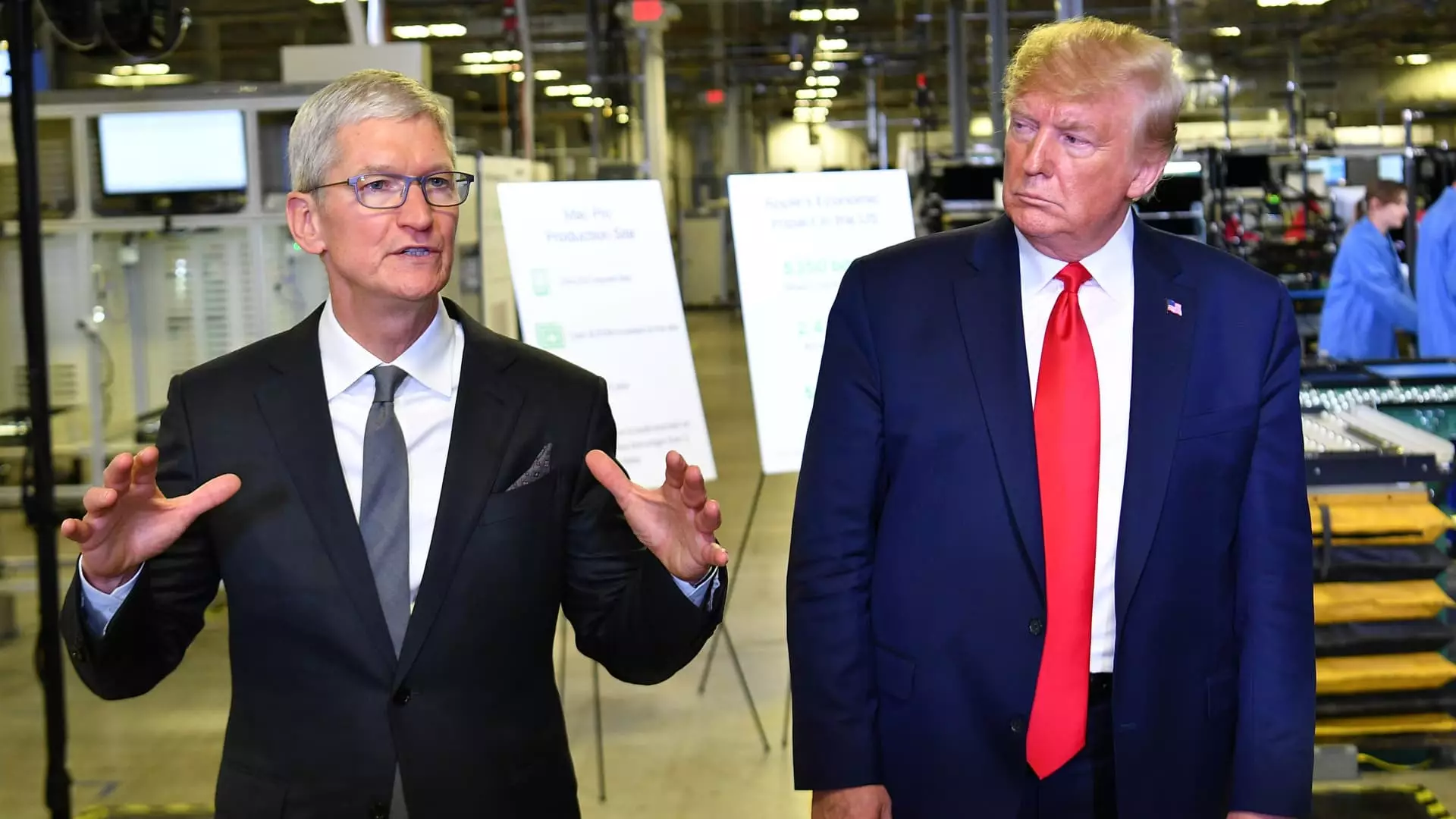In an era where the intersection of politics and commerce is increasingly unavoidable, President Donald Trump has taken it upon himself to play the role of a corporate watchdog— albeit with a heavy bat. His latest tirade against Apple, invoking a potential tariff of 25% or more on iPhones manufactured outside the U.S., raises not only eyebrows but deep concerns about the broader implications for the American economy and the tech industry at large.
Trump’s social media outburst, which boldly asserted that Apple must produce iPhones domestically or face severe financial penalties, reflects a disturbing trend: the willingness of political leaders to weaponize trade policy against private companies. The message sent is loud and clear; either conform to an arbitrary standard of “American-made” or be subjected to punitive tariffs that would not only hike prices for consumers but would also destabilize the market dynamics that have led to Apple’s success.
The Reality of Manufacturing Economics
Apple has long been a target for criticism as it relies heavily on overseas manufacturing, particularly in China. With an intricate supply chain that capitalizes on economies of scale, shifting production back to the U.S. is not merely a patriotic endeavor—it’s a logistical nightmare that would fundamentally alter the product pricing structure. As industry analysts suggest that the cost of an iPhone, if produced domestically, could skyrocket to an estimated $3,500, one must question the feasibility and implications of such a move.
In pursuing an “American-made” agenda, Trump may not be taking into account the economic realities that govern these large multinational firms. The outsourcing of production is not about circumventing American labor; it is a pragmatic response to the global economy’s complexities. A sudden switchover to domestic production could disenfranchise consumers and cripple Apple’s competitive edge against global rivals that have fewer restrictions and lower labor costs.
Tariffs: A Double-Edged Sword
While the intention behind imposing tariffs may be to fortify American manufacturing jobs, the consequences of such policies often have the opposite effect. Tariffs act as a regressive tax on consumers, disproportionately affecting middle and working-class families, who are often the primary purchasers of technology. The camaraderie between Trump and major corporate players like Apple appears to have taken a starkly hostile turn; companies that previously enjoyed a relatively stable rapport with the administration are now under fire for their business strategies.
Furthermore, these new tariff proclamations unsettle not just consumers but also investors, as evidenced by a recent 2% drop in Apple shares following Trump’s Tweet. Unpredictable trade policies instigate uncertainty in financial markets, leading many to reevaluate their investment strategies in sectors vulnerable to such political whims. The ramifications can be extensive enough to reach beyond individual companies, casting a shadow over the stock market and investor confidence in American corporate enterprise.
A Tenuous Relationship with International Trade
Trump’s ongoing saga with Apple also mirrors broader tensions in international trade, particularly between the U.S. and China. His simultaneous calls for economic war against various countries represent a glaring shift in the American trade philosophy. The attempt to reignite tariffs previously put on hold, including a new call for a 50% tariff on products from the European Union, demonstrates a broad agenda that favors isolationism over global cooperation.
Yet, this approach raises significant questions among political analysts and economists: Are tariffs a viable solution to bring manufacturing investments back to the U.S., or do they represent misguided nationalistic fervor that could lead to retaliatory measures? Such tactics could ignite a full-blown trade war, compromising not only tech firms like Apple but also other industries reliant on stable international trade relations.
Simultaneously battling weak demand in China while being targeted by the current U.S. presidency puts Apple in an increasingly precarious position. The trajectory of this corporate giant will be pivotal not merely for its own balance sheets but as a bellwether for how public sentiment and political strategies will shape the future of American business. The intersection of commerce and governance can produce unfathomable consequences, leaving both corporations and consumers caught in a crossfire that is likely to intensify in the coming months.


Leave a Reply